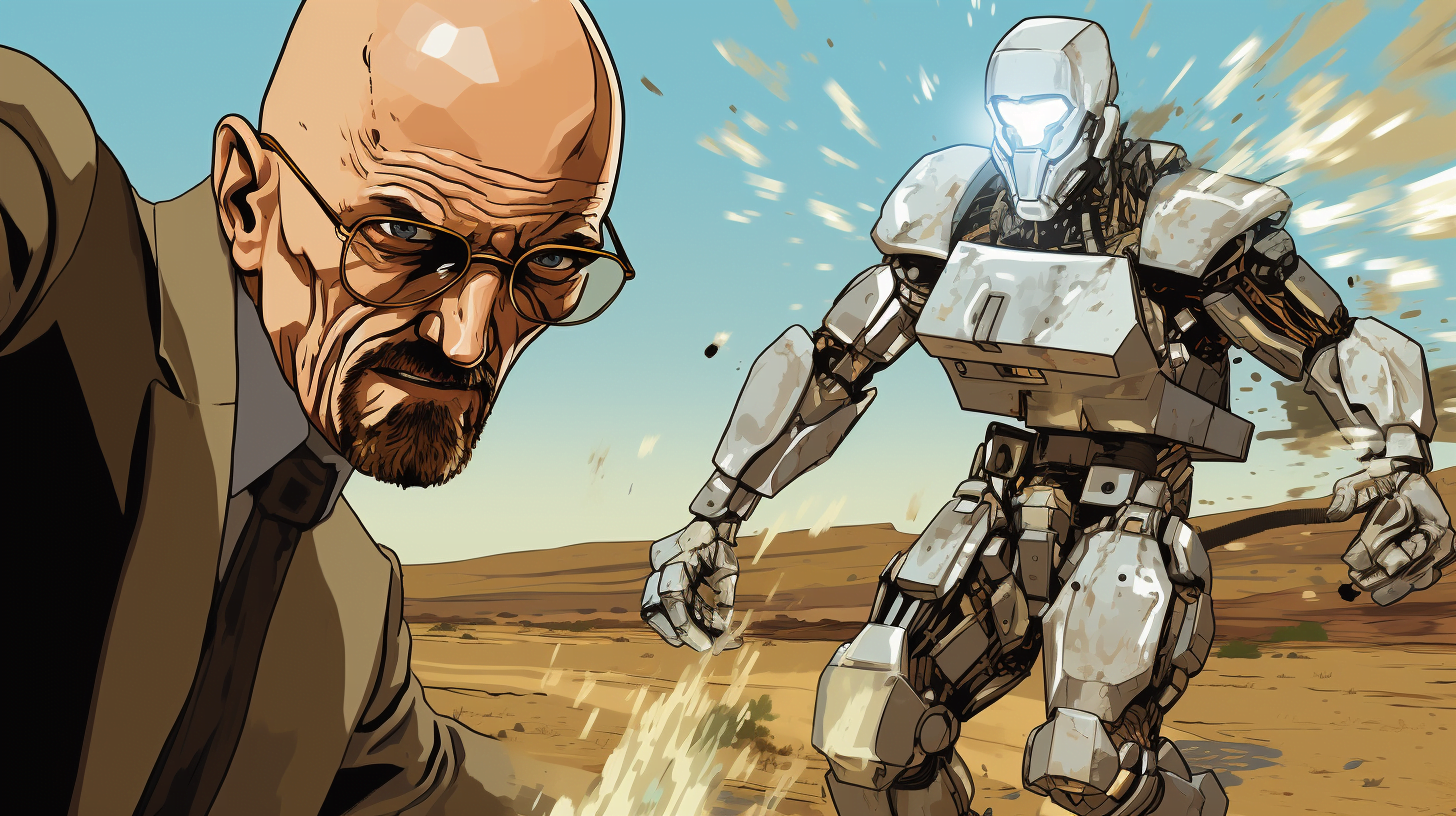Bryan Cranston's anti-AI stance points to bumpy road ahead for job-killing AI companies

US actor, producer, and director Bryan Cranston (Breaking Bad, Malcolm in the Middle) spoke out against the use of artificial intelligence in the entertainment industry at a SAG-AFTRA rally in New York during the Hollywood actors' strike.
Cranston called for the preservation of actors' right to work and dignity and criticized Disney CEO Bob Iger's earlier dismissal of the strike. The current strike is against financial inequality in a rapidly changing industry that has been transformed recently, especially with the advent of streaming services.
Now comes AI, which can automate or synthesize certain work, for example in the field of authors or sound and image production.
"We don’t expect you to understand who we are. But we ask you to hear us, and beyond that to listen to us when we tell you we will not be having our jobs taken away and given to robots. We will not have you take away our right to work and earn a decent living. And lastly, and most importantly, we will not allow you to take away our dignity."
Bryan Cranston
The actors' strike is just another sign that parts of society are pushing back against AI technology as it begins to reshape jobs.
Image-generating models have been met with protests from designers who fear for their jobs, the Authors Guild is threatening to sue Big AI, and there are already several ongoing lawsuits over text and image models trained on copyrighted material.
Publishers in the US are reportedly seeking billions in licensing fees, and there are some anecdotal reports of people who work with text losing clients to ChatGPT or fearing they will lose them.
While Cranston emphasizes the "right to work" and "dignity," and there is certainly a very relevant moral and ethical note to the use of AI in society and the changing role of human labor, there is also a lot of money at stake.
Of course, jobs will be lost, says OpenAI CEO
Fittingly, OpenAI CEO Sam Altman just reiterated his stance in an interview with The Atlantic. While there is the narrative that jobs will not be lost to AI, only replaced by people using AI, Altman says that of course, jobs will be lost.
"A lot of people working on AI pretend that it's only going to be good; it's only going to be a supplement; no one is ever going to be replaced. Jobs are definitely going to go away, full stop."
Sam Altman
Altman has stated this before: "It's important to be honest," he said at the launch of OpenAI's DALL-E 2 image generator.
In fact, his second big bet, Worldcoin, is essentially a hedge against mass unemployment when AI takes over the world, supporting fair and efficient transactions of a universal basic income (UBI) worldwide by reliably identifying people through iris scans. Although, as crypto founder Vitalik Buterin points out in a detailed blog post, the system still has issues such as accessibility and privacy risks.
OpenAI itself published a study on the impact of LLMs using tools such as Internet search or code interpreter and found that large language models will affect at least 10 percent of the work of about 80 percent of U.S. workers. For 19 percent of workers, language models are expected to impact at least 50 percent of tasks.
However, Altman also noted that AI will create a lot of great new jobs. We'll see how that plays out.
AI News Without the Hype – Curated by Humans
As a THE DECODER subscriber, you get ad-free reading, our weekly AI newsletter, the exclusive "AI Radar" Frontier Report 6× per year, access to comments, and our complete archive.
Subscribe nowAI news without the hype
Curated by humans.
- Over 20 percent launch discount.
- Read without distractions – no Google ads.
- Access to comments and community discussions.
- Weekly AI newsletter.
- 6 times a year: “AI Radar” – deep dives on key AI topics.
- Up to 25 % off on KI Pro online events.
- Access to our full ten-year archive.
- Get the latest AI news from The Decoder.